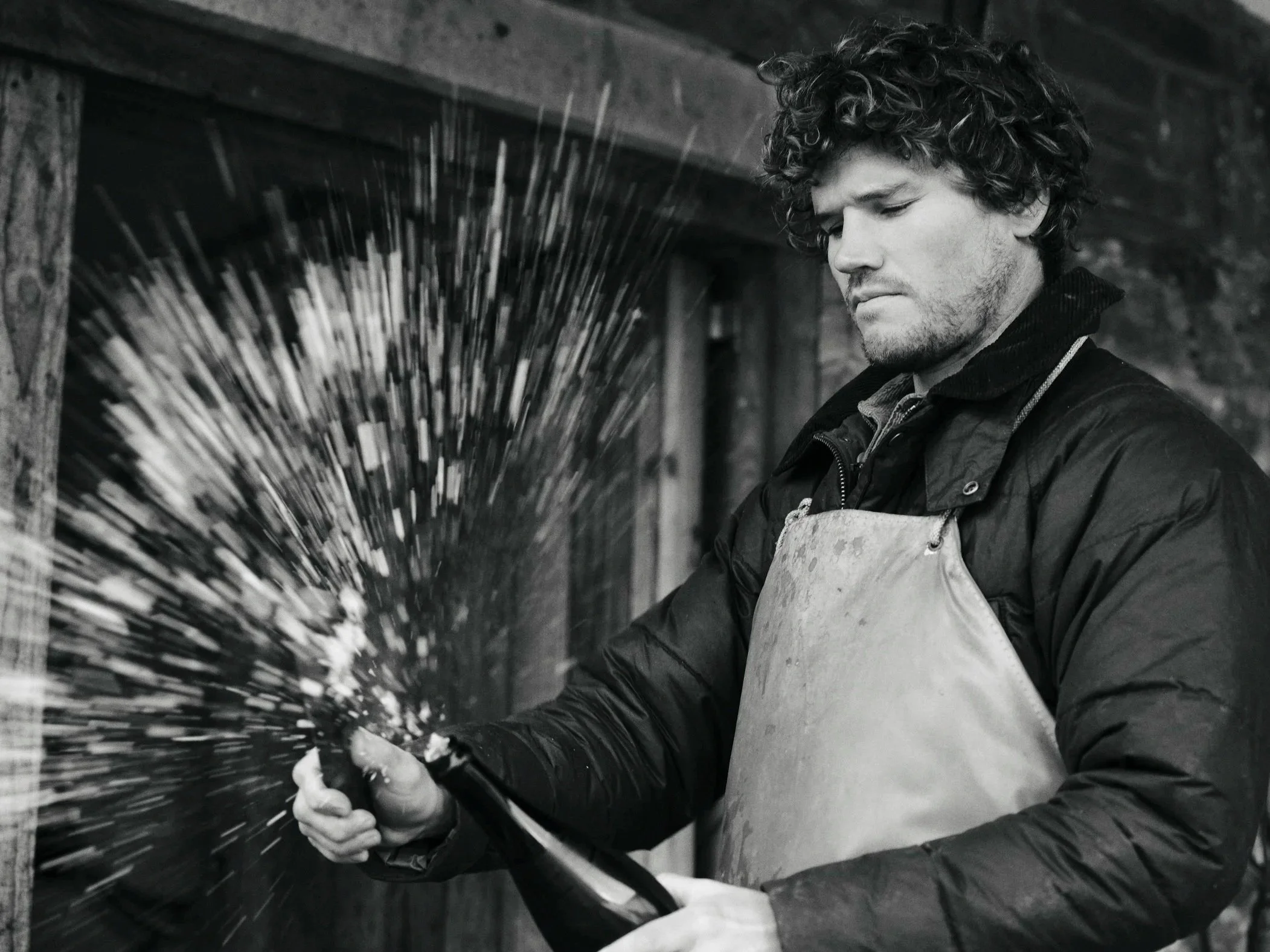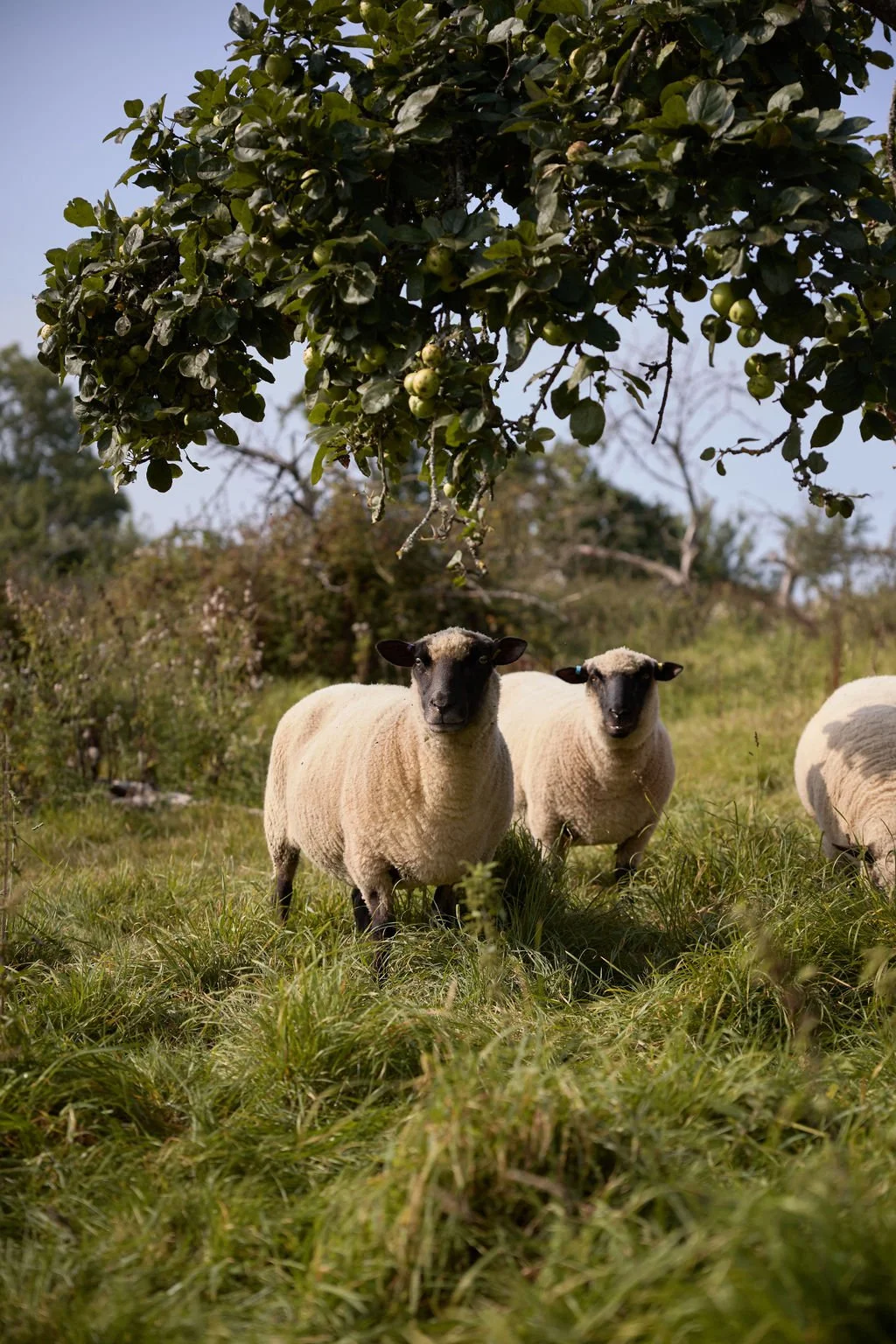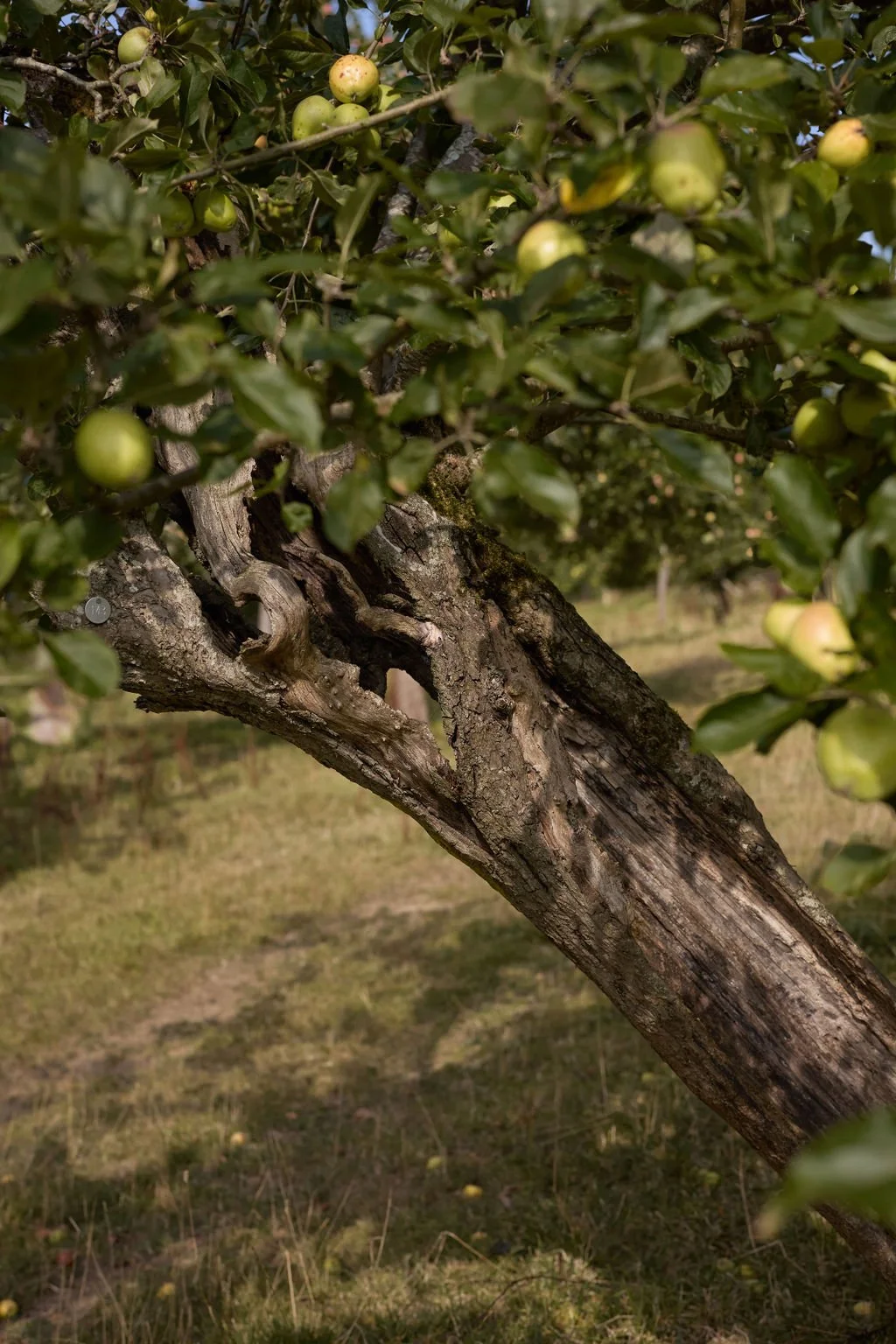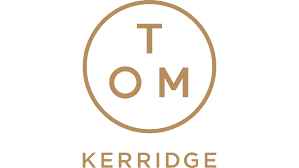
Fine English Ciders From Traditional Devon Orchards
Crafting Fine Ciders from Traditional Devon Orchards
In the heart of Devon, we are on a mission to unlock the full potential of traditional English orchards by crafting fine ciders that reflect the rich heritage and biodiversity of the region. The orchards we foster - cultivated and nurtured with care - produce world-class, natural ciders using time-honoured techniques like the Traditional method, keeving, and pét-nat (pétillant naturel) fermentation. These exceptional English ciders are featured on the wine lists of many of the UK’s top restaurants.
Reviving Devon’s Heritage Orchards
With the help of our Shropshire sheep, we collaborate with farmers across the Exe Valley in Devon to give their orchards renewed purpose. These historic spaces - often home to rare, local apple varieties - are vital to biodiversity and the preservation of traditional cider-making in England. We aim to create and maintain thriving, balanced ecosystems that support wildlife and require minimal intervention.
Natural Cider, Pure Expression
Our fine ciders are a true expression of Devon’s terroir and apple diversity. We use low-intervention methods, adding minimal or no sulphites and avoiding filtration. Each small batch is carefully blended and aged in French oak barrels or stainless steel tanks to develop nuanced flavour profiles. The rare and heritage apple varieties we use offer a broad spectrum of aromas, tannins, and acidity—resulting in complex, elegant English fine ciders with depth and character.
A Sanctuary for Biodiversity
Unlike commercial orchards, the traditional orchards we foster are biodiversity hotspots. Rich in rare species and home to essential pollinators, birds, and wildlife, these orchards also serve as living gene banks. Many trees have survived for over a century without the use of chemicals, making their disease-resistant genetics a crucial resource for future orchard sustainability.
We graft these resilient varieties onto young rootstock, planting new trees to secure the future and ecological value of these traditional Devon orchards, whilst preserving endangered apple varieties.
Protecting England’s Cider Heritage
Since World War II, over 90% of Devon’s traditional orchards have been lost, and more than half of the remaining ones are in poor condition (Natural England, 2011). We work with small orchards across the Exe Valley - many ancient, occasionally overgrown, often not the land owners primary focus. By fostering these orchards, we are helping to preserve a vital part of England’s cider heritage.
Thanks to training from local conservation organisations like Orchards Live and Orchard Link, we manage our orchards with biodiversity and long-term health in mind. Our approach includes strategic pruning, grazing with our Shropshire sheep to improve sward structure and soil health, and late-season mowing to support native flora and fauna.
From Forgotten Fruit to Fine Cider
For years, apples from these orchards often went to waste, providing nutrients for rapid weed growth. Today, they’re transformed into award-worthy, natural fine ciders that celebrate the land and the traditional methods of English cider making. Every bottle tells a story of regeneration, biodiversity, and exceptional craft.



































